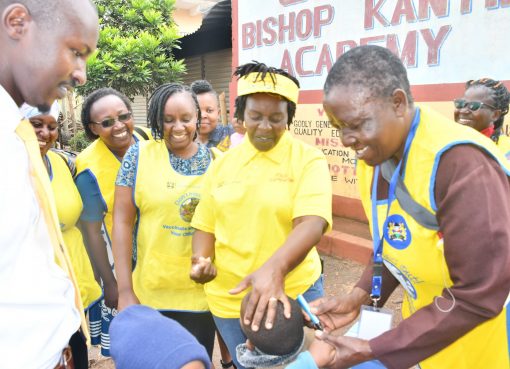The government is in the process of automating the Seed Certification and Plant Variety Protection System in the country.
The existing manual registration and licensing processes have been associated with delays, documentation errors and inefficiencies including with security, scheduling and processing time thus government potentially wanting to harness technological solutions
The seed certification process is a clear way of assuring seed quality hence ensuring that the farming community receives seeds that is viable resulting in value for money.
Kenya Plant Health Inspectorate Service (KEPHIS) Ag. MD Simeon Kibet says Kenya has been operating on manual inspections since the inception of KEPHIS in 1997 but for the last two years started developing the system which is now at piloting stage.
He explained that that the process has been automated in the developed world while in Africa, two countries namely South Africa and Zambia have automated their seed certification processes.
“The Kenya Seed Company (KSC) in Kitale and Bubayi Limited are running the pilot programme with KSC specializing in all kinds of seed crops while Bubayi focuses on beans and the automation is based on lessons learned from the two African countries.”, he said
Kibet noted that the process of seed certification is divided into three parts, variety description which results in development of the variety descriptors, Field inspections which ascertains the trueness to type of the crop variety and also Seed testing which assures the seed purity and germination which the seed must meet for it to be sold to farmers.
“The new System will have enormous benefits such as faster registration of seed crops, faster imputing of seed inspectors results and also ease of registering crop varieties for Distinctness, Uniformity and Stability(DUS)”, he said
The MD further added that it will also be easier to get variety release results of crop varieties by breeders, seed testing results transmission to seed companies and also transparency and efficient methods of payment by mobile money transfer for service rendered.\
Other advantages, he noted are the ease of getting seed sellers licenses by stockists and agents and also faster means of requesting for services such as labelling, work orders, sampling and re-sampling of seed
“ From May 2020 to April 2021, growers are being registered; seed crops are being registered online; inspections will be requested online and data captured in real time and be processed automatically through the system that will be accessible to merchants online”, Kibet said
Quality Assurance General Manager of KEPHIS , Simon Maina said that good progress has been made towards the registration of crops and that by November 2020, they expect to have applications for National Performance Trials (NPTs) and Distinctness, Uniformity and Stability (DUS) tests.
“Training for staff and stakeholders is ongoing, but this has been interrupted due to COVID-19 but KEPHIS and Trade Mark East Africa ( TMEA ) have engaged stakeholders in Nairobi, Taita Taveta, Mombasa, Kwale, Nakuru, Kisumu, Tana River and Baringo.
KEPHIS Kitale Regional Manager Ephraim Wachira said that the automation will create efficiency in the seed certification process by reducing time spent by inspectors entering inspection data in the computer databases and writing reports.
“Seed companies will be able to track in real time the progress of certification of their seeds and the system will therefore save clients time and money they would have used to travel to the nearest KEPHIS office to apply for licenses.
However, Wachira noted that inspectors will still be required to inspect seed sellers’ premises physically to ensure that seed is stored and handled well to maintain high seed quality.
Kenya Seed Company Eunice Ombachi said they are on track in the pilot programme , they are collecting data and inputting from all the stakeholders and that although it’s not easy because the manual process has to continue she is sure that the programme will be launched by next year.
The automation is financed by Trade Mark East Africa (TMEA) and is expected to be officially launched in 2021.
By Wangari Ndirangu




